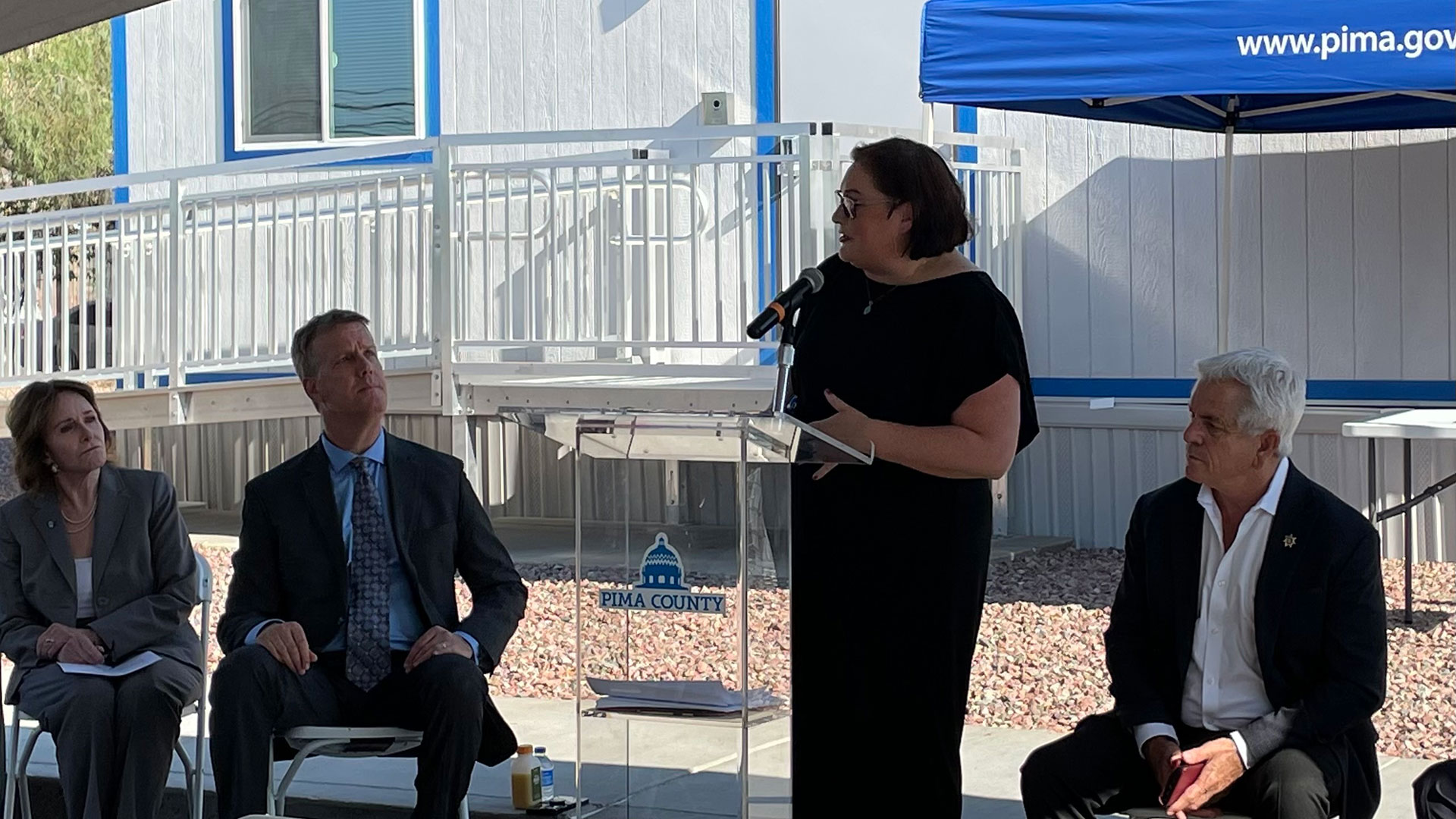 Justice Services Director Kate Vesely speaks at the official opening of the Pima County Transitions Center on Thursday, Sept. 7, 2023. From left to right: County Administrator Jan Lesher, Supervisor Rex Scott, Vesely, and Pima County Sheriff Chris Nanos.
Justice Services Director Kate Vesely speaks at the official opening of the Pima County Transitions Center on Thursday, Sept. 7, 2023. From left to right: County Administrator Jan Lesher, Supervisor Rex Scott, Vesely, and Pima County Sheriff Chris Nanos.
The first dataset on a county effort to reduce the number of people in jail has been released.
According to a report from Pima County Justice Services, nearly 500 people have accepted some level of assistance from the Transition’ Center.
The building is located directly outside the jail’s exit point on the Pima County Adult Detention Center campus.
Workers called “Justice Navigators” intercept individuals who have just been released, and offer help with rides, food, drug treatment and mental health services, and housing.
Since it opened in September, 90% of those who received assistance were not rebooked within 30 days. Program Manager Doyle Morrison told the Board of Supervisors on March 5 that number is usually closer to 73%.
He also told the Board that making a plan directly upon release is a crucial step in ensuring individuals don’t become trapped in cycles of incarceration.
“Making sure they’re not spending the night out in the environment, unsheltered, trying to figure out what their next steps are, and maybe even reverting to some of their past behavior just to survive,” Morrison said.
With nearly 60% of recent releases experiencing homelessness, Justice Services Director Kate Vesely said housing remains their biggest challenge, especially since a lot of community services won’t take those involved with the justice system.
According to Vesely, they need more emergency shelters that are willing to take those involved in the justice system.
“Someplace that is, is willing to take somebody in the middle of the night, no questions asked. And then also be a conduit to more extensive services the next day. So sleep here tonight, get a good night's rest. And then tomorrow, we're going to work with you to make a plan,” she said.
According to the center’s report to the Board of Supervisors, all their workers have been directly involved in the justice system in some way. They’re also not law enforcement, which Vesely said her workers make very clear.
“The value of having somebody who has experienced this before cannot be understated. It's a very different conversation,” she said.
Although the program is designed for those charged with minor crimes and released from pretrial services, Vesely said they practice an open-door policy, and have helped individuals who have been detained for months.
County officials said due to a backup in the court system, they’re still working on determining whether the transition center has helped reduce failures to appear in court.

By submitting your comments, you hereby give AZPM the right to post your comments and potentially use them in any other form of media operated by this institution.